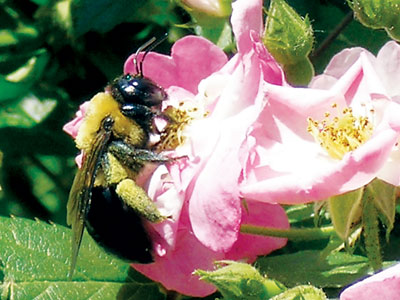All Nonfiction
- Bullying
- Books
- Academic
- Author Interviews
- Celebrity interviews
- College Articles
- College Essays
- Educator of the Year
- Heroes
- Interviews
- Memoir
- Personal Experience
- Sports
- Travel & Culture
All Opinions
- Bullying
- Current Events / Politics
- Discrimination
- Drugs / Alcohol / Smoking
- Entertainment / Celebrities
- Environment
- Love / Relationships
- Movies / Music / TV
- Pop Culture / Trends
- School / College
- Social Issues / Civics
- Spirituality / Religion
- Sports / Hobbies
All Hot Topics
- Bullying
- Community Service
- Environment
- Health
- Letters to the Editor
- Pride & Prejudice
- What Matters
- Back
Summer Guide
- Program Links
- Program Reviews
- Back
College Guide
- College Links
- College Reviews
- College Essays
- College Articles
- Back
Bee Trouble MAG
As each spring passes, fewer and fewer bees are making their debut, buzzing from flower to flower adding that extra detail that makes springtime complete. Their absence might have picnickers celebrating, but it has scientists scratching their heads. The fact is, the world’s bees are disappearing at an alarming rate, and scientists have not been able to uncover the reason for this disturbing occurrence.
Colony Collapse Disorder, the disappearance of large numbers of bees at the same time, is the official term for this phenomenon. Bee pollination is necessary for about one-third of the food we consume, according to research that Burt’s Bees conducted into the bizarre disappearance. Many food companies depend on bees to pollinate ingredients for their products. Häagen-Dasz ice cream is just one of many brands taking an active role in discovering why bees are disappearing. Even with funding from these major companies, scientists have not yet been able to locate the direct cause for this disappearance.
Although scientists don’t yet know the source of CCD, they have theories. Some think that cell phone usage might be the cause. The radiation sent off by phones could be interrupting the bee’s internal navigation system. German research also shows that bee behavior changes when they are near power lines. Other scientists believe that the use of certain pesticides might be the culprit, with nicotine-based pesticides being the number-one suspect. Another possible cause could be biological, with bees being affected by a disease that spreads from one to another.
This summer, children jumping through sprinklers in the hot July air may not have noticed the lack of bees. Picnicking families will be happy to have only ants to shoo away. However, beekeepers and scientists will continue to scratch their heads and sweat in a way that has nothing to do with the heat, but rather with the continuing disappearance of what could be the world’s most important creature – the bee.

Similar Articles
JOIN THE DISCUSSION
This article has 6 comments.
